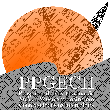Banca de QUALIFICAÇÃO: SAMARAH ROHDT SOARES
Uma banca de QUALIFICAÇÃO de MESTRADO foi cadastrada pelo programa.DISCENTE : SAMARAH ROHDT SOARES
DATA : 30/03/2024
HORA: 08:00
LOCAL: UNEMAT BARRA DO BUGRES
TÍTULO:
TEACHING THE TERENE MOTHER LANGUAGE AT THE SCHOOL OF ALDEIA ALDEINHA-MS: A PEDAGOGICAL TEACHING PROPOSAL
PALAVRAS-CHAVES:
Terena People; Education and Culture; Mother tongue; Cultural Appreciation
PÁGINAS: 120
GRANDE ÁREA: Lingüística, Letras e Artes
ÁREA: Letras
SUBÁREA: Línguas Indígenas
RESUMO:
The Terena People can be considered the last remnant of the Guaná Group, whose word means “many people”. The Guaná are characterized as a people made up of several ethnic sub-groups, inhabitants of the southern region of South America, more specifically, in the Chacos between Paraguay and Brazil. Characterized by being excellent farmers, they ended up being subservient to the more warlike sub-groups and decided to move to other lands, reaching the territory that is today called Mato Grosso do Sul. After the War of the Triple Alliance, many Brazilian combatants did not return to their places of origin, remaining and invading Terena lands, without any authority defending the rights of these indigenous people who contributed so much to Brazil in this war that disputed and defended borders. Speakers of the mother tongue of the Aruak trunk, the majority of the Terena live in discontinuous territories, surrounded by large farms, spread across seven municipalities in the south of Mato Grosso, however, Terena people are found in the State of São Paulo and in the northern region of Mato Grosso . In the city of Anastácio-MS, Aldeia Aldeinha is characterized as an urban village, where around 600 residents live, whose main form of communication is Portuguese, with few speaking and understanding their mother tongue. In view of the projects aimed at valuing traditional culture, the Escola Estadual Indígena Guilhermina da Silva offers a subject called “Mother Tongue”, therefore, this work aims to present a didactic and pedagogical proposal for working with the Mother Tongue. with elementary school students. Seeking to value traditional culture, to build this proposal, bibliographical research was necessary to search for texts published in the mother tongue of the Terena, as well as to build the history of my people, as well as that of Aldeia Aldeinha. This is a field research work, with the interview being a way of searching for data in the mother tongue to build small dialogues and exercises to compose the pedagogical teaching material, which can be used in the classroom in different areas of knowledge, considering that, in addition to activities in the mother tongue, it brings the history of the Terena People and the Aldeia Aldeinha. As a theoretical contribution, we sought reference authors who published about the Terena in different aspects, such as Bittencourt and Ladeira (2000), Oliveira (1976), Pereira and Nascimento (2013), Reginaldo (2016), Sebastião (2016), among others. . It is a work of utmost importance, since the format of the pedagogical teaching material proposes that students develop small dialogues, from everyday situations, seeking, over time, for the Terena language to be adopted as a routine practice in Aldeia Aldeinha.
MEMBROS DA BANCA:
Presidente - 62713001 - MARIA HELENA RODRIGUES PAES
Interno - 60581007 - LISANIL DA CONCEICAO PATROCINIO PEREIRA
Externo ao Programa - 83247001 - WELLINGTON PEDROSA QUINTINO
Externo à Instituição - LETÍCIA FONSECA RICHTHOFEN DE FREITAS - UFPel



